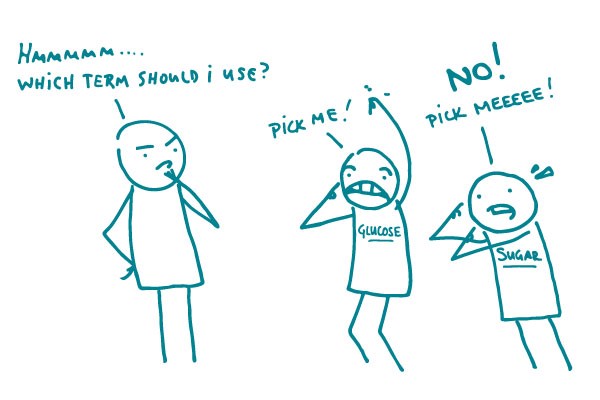
High-fructose corn syrup. Lactose intolerance. Is it us or does it seem like there are lots of “-ose” words cropping up in health talk lately? So today we thought we’d talk about another “-ose” word that can be important in health writing — especially for the 1 in 11 people in the United States who have diabetes. That’s right, dear readers, let’s talk about “glucose.”
So, do we embrace the scientific word or opt for a simpler alternative? Our answer: it depends on your audience.
When writing for people who don’t have diabetes, skip the word “glucose.” After all, like most other “-ose” words, glucose is a type of sugar. It’s enough to just say “sugar.”
After we eat, our bodies break the food down into sugars. In most people, these sugars turn into energy. But in people with diabetes, many of these sugars don’t turn into energy — instead, they build up in the blood. That’s why people with diabetes have high blood sugar levels.
For people who will likely see the word again (like those who are newly diagnosed with diabetes), use and define “glucose” before giving an explanation.
Glucose is a type of sugar that your body makes when it breaks down food. In most people, glucose gets turned into energy. But in people with diabetes, glucose builds up in the blood. And too much glucose in your blood leads to health problems.
The bottom line: For most audiences, skip “glucose” and use “sugar.” For people who need to know “glucose,” use it — but keep the definition short and sweet.
Browse recent posts